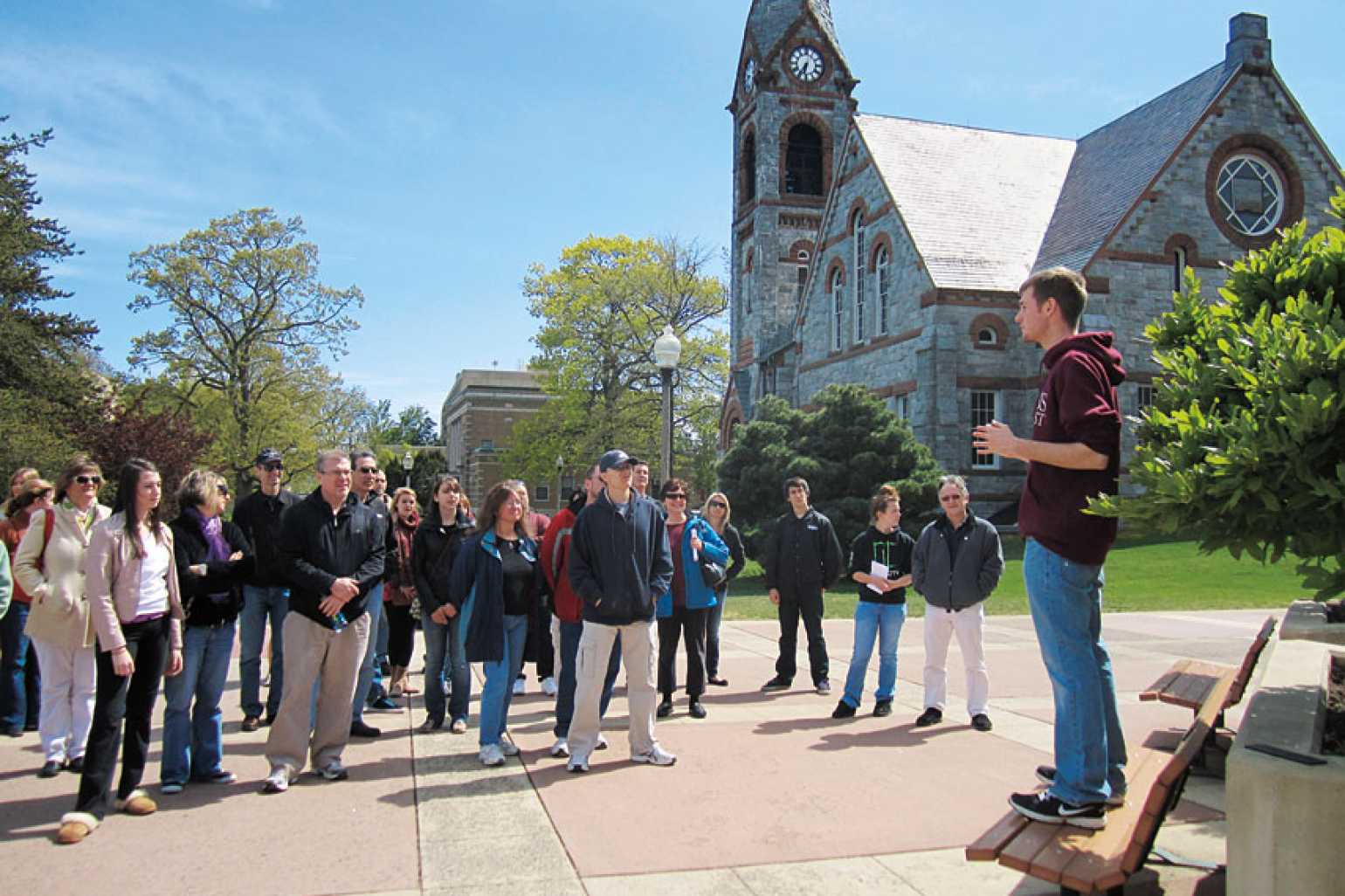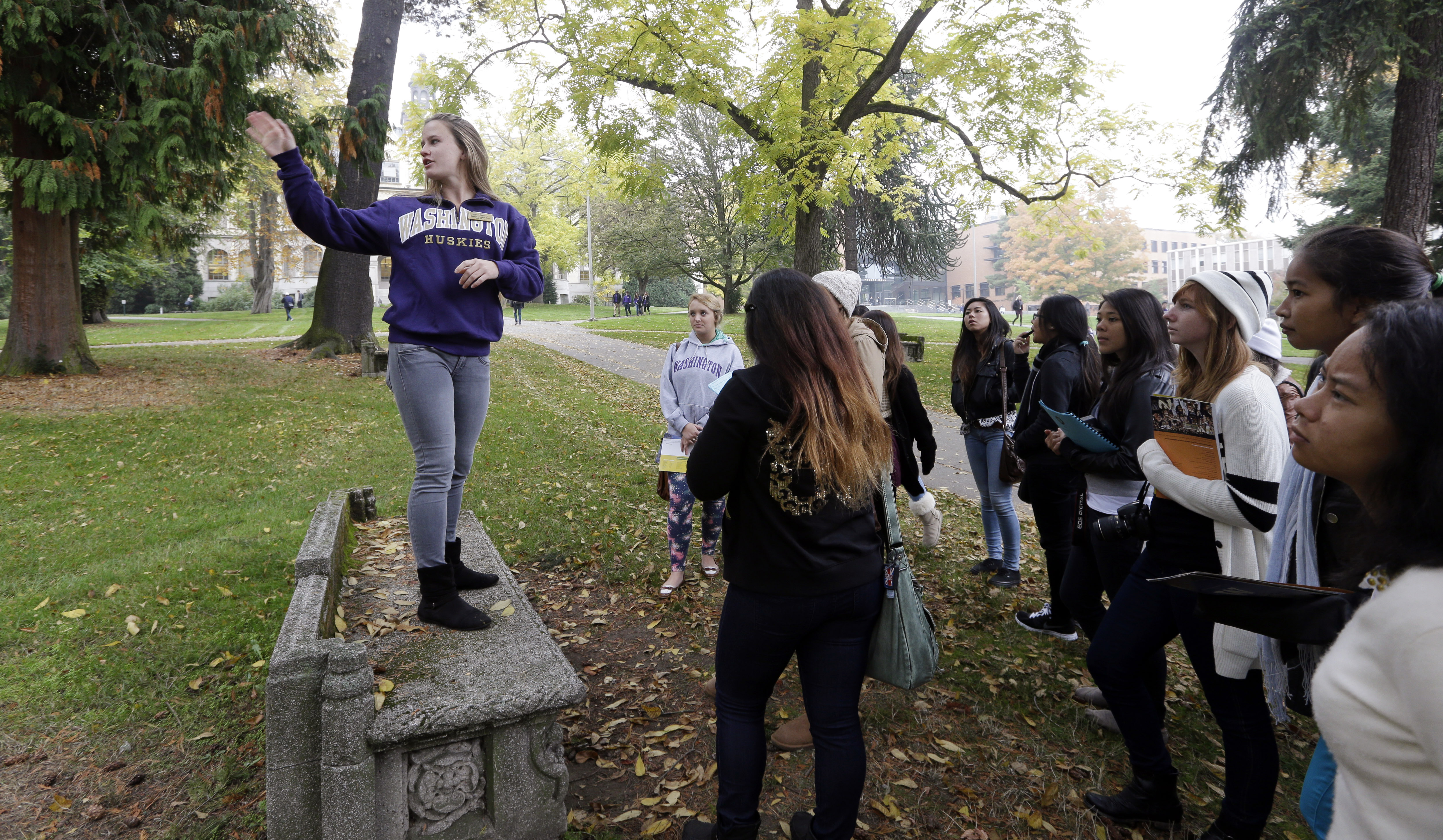Campus Visits Done Correctly
Because the only thing you should be objectifying on a college campus is the college campus.
By Jesse Sisler, DePaul University
First of all, you’re touring the place where you might be spending the next four years of your life, so keep that in mind.
Visiting a college campus should not just be an excuse for an overzealous seventeen or eighteen-year old to party with older kids. It’s serious business.
I almost made the mistake of picking a college because I enjoyed the visit so much, but the truth is, if I hadn’t been with my family and best friend, it would have been just an average day. When touring colleges, really immerse yourself in the experience and take these pieces of advice with you.
The few hours you spend surrounded by potential future classmates should not be the end-all be-all of your decision, but they are the best indicators of what life might be like at that school.
Take the guided tour with a grain of salt.
Your tour guide is affiliated with the university, so they’re not going to tell you about the time some kid fell off a fraternity balcony. Tour guides are also generally upperclassmen, so of course they’ve enjoyed their experience. They want to share it with you, and that’s really nice of them, but memory clouds reality.
And even if their experience has been completely flawless, you are not them. Block out most of what the tour guide says if you sense bias in his or her voice. Take in the stuff they say about campus logistics and which libraries are nice, but don’t let them convince you their school is heaven on earth. Instead…
…observe your surroundings.
Take notice of the types of kids you see. Are you artistic? See if you can imagine yourself finding a decent amount of people with similar interests. Jock? Take in the personnel at the rec room. This is the reality of college, not what your tour guide says.
You’ve been given a great opportunity: to catch a glimpse of a day in the life of student. Are they smiling as they sit on the dorm stoop, or are they insanely annoyed at the shirtless toolbag in the cafeteria? Their faces and body language hold much more truth than the university’s Facebook page.
Spend as much time in a dorm as possible.
Usually, guides just walk you in and out of one dorm, and they do it in as little time as possible to reduce the risk of stumbling upon something no teen wants to witness alongside their parents. The dorm is where you will spend most of your freshman year, so get a feel for what dorm life is like.
How do students spend their time on a typical day? Can you see yourself sharing a shower with a floor of strangers for nine months? Would it be a total pain in the ass to walk to class in the dead of winter from your room? All of these are critical, day-to-day lifestyle questions that can only be answered by you.
Take a walk by yourself.
Your parents and siblings won’t be with you on lazy Friday afternoons as you walk from Chipotle to the library. See what that would feel like.
Having parents present on your visit works two ways: They’ll either taint what is a good option for you, or make a bad option seem livable. So for thirty minutes, pretend you’re a student.
Meet with a counselor.
It’s their job to be objective. If they don’t think the school is a good fit for you, they’ll tell you. If you do end up going there, you’ll already have a professional ally on day one. Meeting with a counselor will also give you a good sense of the university’s professional philosophy.
Check out restaurant row.
Can you live on Subway and Domino’s for four years? Sure, there’s that nice Italian restaurant where you can eat once a month when your folks are in town, but pay attention to where other students are eating.
Restaurants on campus are also an experiment in will power. Is it going to be too much of a temptation to splurge on fast food instead of your meal plan? (Then again, this is an issue on every college campus. So just visit the restaurants because it’s fun to see what the local cuisine is like.)
Sit in on a class.
You’ll be shocked how different the same class at two different schools can be. The gen-eds I took at the University of Iowa were lecture-hall based. They typically were filled with 300 people, more than half of whom were more interested in their Twitter feeds than the professor’s lecture.
Gen-eds at DePaul are different in size, but not in content. A 100 level class usually has 30-40 kids, and again, you’ll see half of them on their devices ignoring the profs. But it’s pretty incredible how much class size makes a difference. To me, it just feels like I’m learning more in a smaller classroom.
It’s also a lot easier to interact with students and faculty, and a learning environment really comes through. Remember: Pay more attention to the classroom setting than the professor. You can read about professors online, but this is the best chance you’ll have to see what sitting in a class would be like for you.
Don’t rely too much on your gut.
This is a really common mistake, and I fell prey to it. It feels nice to trust your instincts, and what is the feeling of “home” if not instinctual? Teens love to think their intuition is spot-on about everything, but choosing a place to live for the next chunk of your life is something that should also be thought about on an intellectual level. Make a pro-con chart. Talk to the people who know you best. Don’t assume that just because you felt great one day means you’ll feel great every day.
Visiting a college is exciting, and the adrenaline coursing through your body is often enough to convince you that you’re in the right place. At the end of the day, just being on campus is not the best indicator of where you should go. Don’t let the one great day you had decide for you. Let the feelings subside and revisit your thoughts a few weeks later. If anything, the feelings that remain will be the most authentic.








